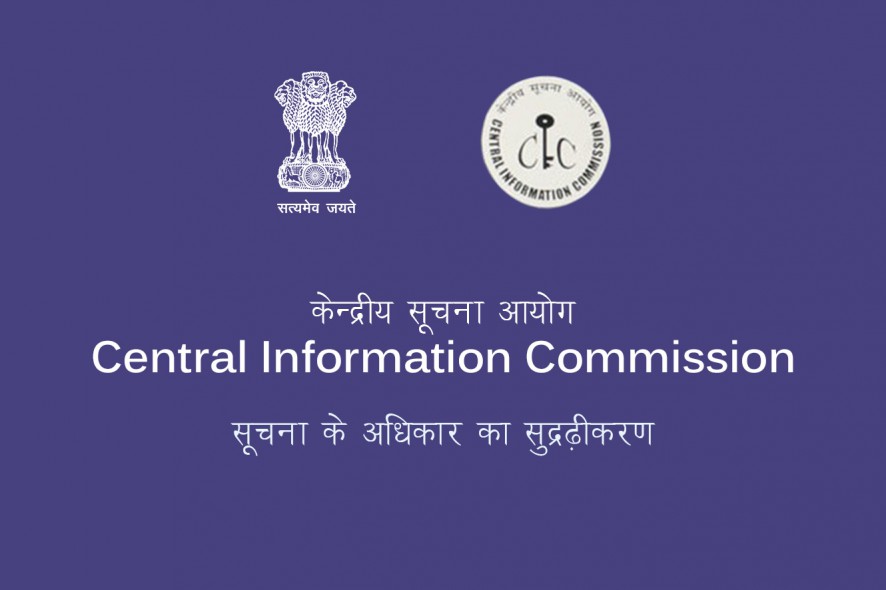Central Information Commissioner (CIC): Bimal Julka, Information Commissioner, addressed an RTI application filed seeking information pertaining to 510 Certified Medical Reports purportedly signed by the appellant and in respect to this the Commission referred to a plethora of cases and thus held that,
“Framework of RTI Act restricts the jurisdiction of the Commission to provide a ruling on the access/right to information.”
In the present case, the appellant sought information with respect to 510 certified medical reports which were purportedly signed by her. CPIO denied the disclosure of information under Section 8(1) (d) and 8 (1) (e) of the RTI Act, 2005. Aggrieved by the same, the appellant approached the FAA, but even the FAA upheld the CPIO’s response.
Appellant’s representative alleged that the appellant’s medical reports were prepared fraudulently under forged signature after her resignation by a conspirator.
Respondent submitted that a copy of the medical diary was held in the possession of the doctor herself and that she had not returned any such diary to the public authority consequent upon relinquishing the post of a Medical Doctor in the public authority. Respondent possessed proof of the records retained by her. They also maintained the stand that a suitable reply has already been furnished to the appellant.
Appellant did not contest the averments and remained dissatisfied even after inspecting the documents and further alleged that the signature made under the Medical Examination Reports were forged and that she desired to have the certified photocopies of all 510 Medical Reports to substantiate her case in the Court of Law.
Commission had enquired:
Whether any FIR had been lodged against the alleged forgery?
In response to the above, the appellant’s representative replied in negative and submitted that the Court case is underway in the matter and she desired the requisite information to prove her bonafide.
Commission to reach the conclusion referred to the definition of information under Section 2(f) of RTI Act, 2005,
“information” means any material in any form, including records, documents, memos, emails, opinions, advices, press releases, circulars, orders, logbooks, contracts, report, papers, samples, models, data material held in any electronic form and information relating to any private body which can be accessed by a public authority under any other law for the time being in force.”
Further, a reference was also made to an extract from Section 2(j) of the RTI Act, 2005:
“(j) right to information” means the right to information accessible under this Act which is held by or under the control of any public authority and includes ……..”
Thus, the Commission observed that the framework of the RTI Act, 2005 restricts the jurisdiction of the Commission to provide a ruling on the issues pertaining to access/ right to information and to venture into the merits of the case or redressal of grievance.
Commission in a plethora of cases had held that the RTI Act was not the proper law for redressal of grievances/disputes.
In a recent decision of the Delhi High Court, Govt. of NCT v. Ranjendra Prasad, WP (C) No. 10676 of 2016, it was held that,
“…CIC had decided issues that were plainly outside the scope of the jurisdiction of CIC under the Act. The limited scope of examination by the CIC was: (i) whether the information sought for by the respondent was provided to him; (ii)if the same was denied, whether such denial was justified; (iii) whether any punitive action was required to be taken against the concerned PIO; and (iv) whether any directions under Section 19(8) were warranted. In addition, the CIC also exercises powers under Section 18 of the Act and also performs certain other functions as expressly provided under various provisions of the Act including Section 25 of the Act. It is plainly not within the jurisdiction of the CIC to examine the dispute as to whether respondent no.2 was entitled to and was allotted a plot of land under the 20-Point Programme.”
A similar view of delineating the scope of the Commission’s Jurisdiction was taken in Sher Singh Rawat v. CIC, WP (C) No. 5220 of 2017.
Therefore, keeping in view the facts of the case and the submissions made, the Commission considers no further intervention in the matter. [Dr Rupa Prasad v. CPIO, LIC; 2019 SCC OnLine CIC 1232; decided on 17-10-2019]



